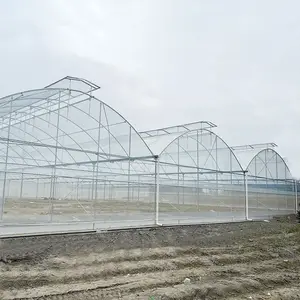Popular in your industry




























































































































































































































Top categories
About small business farming
Small business farming refers to the practice of cultivating crops, raising livestock, or producing agricultural products on a smaller scale with a focus on sustainability and profitability. Small family farms play a vital role in local economies by providing fresh produce, creating job opportunities, and contributing to the community's overall well-being. They often integrate innovative techniques to maximize efficiency and adapt to market demands while prioritizing environmental stewardship. Small business farming is not only a source of income but also a way of life that fosters a deep connection to the land and a commitment to responsible agricultural practices.
Challenges and opportunities of small business farming
While small business farming offers numerous advantages, it also presents a unique set of challenges and opportunities. Limited access to resources, such as land and capital, can pose obstacles to expansion and competitiveness in the market. However, these challenges can be overcome through strategic planning, diversification of products, and leveraging niche markets. In contrast, the scale of small operations allows for greater flexibility and adaptability to changing consumer preferences and market trends.
Small business farming requires a deep understanding of agricultural practices, business management, and marketing strategies to thrive in a competitive landscape. Farmers must continuously innovate, adopt sustainable practices, and build strong relationships with customers to establish a successful and resilient farm business.
Benefits of starting a small farm
Starting a small farm offers a multitude of benefits, both for individuals and the broader community. Small farms contribute to food security by diversifying the local food supply and reducing dependency on large-scale agricultural systems. They play a crucial role in preserving biodiversity, promoting sustainable land use, and mitigating the environmental impact of industrial agriculture. Additionally, small farms foster connections between producers and consumers, creating opportunities for direct sales, agritourism, and community-supported agriculture (CSA) models.
Furthermore, small farms are often the backbone of rural economies, generating employment, supporting local businesses, and contributing to the cultural fabric of their communities. For aspiring farmers, starting a small farm provides a pathway to pursue a passion for agriculture, connect with nature, and lead a more self-sufficient lifestyle. From a business perspective, small farms can offer a more manageable entry point into the agricultural industry, allowing for hands-on learning, experimentation, and the development of a unique agricultural brand.
Strategies for running a successful small farm business
Running a successful small farm business requires a combination of agricultural expertise, business acumen, and a deep commitment to sustainable practices. Farmers must prioritize efficiency, diversification, and market intelligence to navigate the complexities of the agricultural sector successfully. They can achieve this by integrating technology, adopting regenerative farming practices, and staying informed about industry trends and consumer preferences.
Moreover, building strong relationships with customers and the local community is key to the long-term success of a small acreage farm. Farmers can engage in direct marketing, participate in farmers' markets, and offer educational opportunities to connect with consumers and build brand loyalty. Additionally, collaborating with other farmers, participating in agricultural cooperatives, and exploring value-added products can further enhance the profitability and sustainability of a small farm business.












































